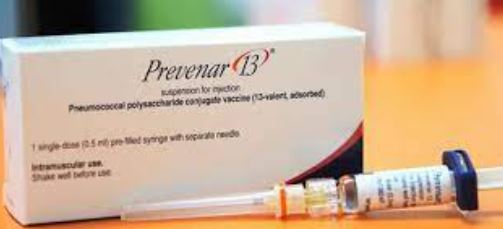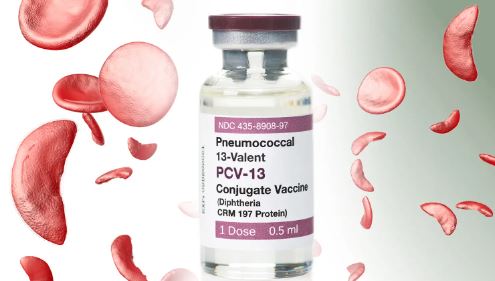Pneumococcal vaccine
Outline
- Introduction to Pneumococcal Vaccine
- Understanding Pneumococcal Disease
- H2: What is Pneumococcal Disease?
- H2: Who is at Risk?
- H2: Symptoms and Complications
- The Importance of Pneumococcal Vaccination
- H2: Prevention of Pneumococcal Infections
- H2: Benefits of Vaccination
- Types of Pneumococcal Vaccines
- H2: Pneumococcal Conjugate Vaccine (PCV)
- H2: Pneumococcal Polysaccharide Vaccine (PPSV)
- Vaccination Schedule and Recommendations
- H2: Recommended Ages for Vaccination
- H2: Booster Doses
- Effectiveness and Safety of Pneumococcal Vaccines
- H2: Efficacy of Vaccination
- H2: Common Side Effects
- Cost and Accessibility
- H2: Availability and Accessibility
- H2: Cost Considerations
- Global Impact of Pneumococcal Vaccination
- H2: Reduction in Disease Burden
- H2: Public Health Initiatives
- Challenges and Misconceptions
- H2: Vaccine Hesitancy
- H2: Addressing Misconceptions
- Future Perspectives and Innovations
- H2: Advances in Vaccine Technology
- H2: Research and Development Efforts
- Conclusion
- FAQs
- H2: How effective is the pneumococcal vaccine?
- H2: Are there any serious side effects associated with the vaccine?
- H2: Is the pneumococcal vaccine recommended for everyone?
- H2: Can you get pneumococcal disease even after being vaccinated?
- H2: Are there any alternatives to vaccination for preventing pneumococcal infections?

Pneumococcal Vaccine: Protecting Against a Silent Threat
Introduction to Pneumococcal Vaccine
Pneumococcal disease is a serious infection caused by the bacteria Streptococcus pneumoniae, commonly known as pneumococcus. This bacterium can lead to various illnesses, including pneumonia, meningitis, and bloodstream infections. However, with the availability of pneumococcal vaccines, it is possible to prevent many of these infections.
Understanding Pneumococcal Disease
What is Pneumococcal Disease?
Pneumococcal disease encompasses a range of illnesses caused by the Streptococcus pneumoniae bacterium. It primarily affects the respiratory system but can also lead to invasive infections affecting other parts of the body.
Who is at Risk?
Certain populations are at an increased risk of pneumococcal disease, including young children, the elderly, individuals with weakened immune systems, and those with certain underlying medical conditions.
Symptoms and Complications
Symptoms of pneumococcal disease can vary depending on the type of infection but commonly include fever, cough, difficulty breathing, and chest pain. In severe cases, it can lead to complications such as sepsis, meningitis, and organ failure.
The Importance of Pneumococcal Vaccination
Prevention of Pneumococcal Infections
Vaccination is the most effective way to prevent pneumococcal infections and their associated complications. By stimulating the immune system to produce antibodies against pneumococcal bacteria, vaccines help protect individuals from developing the disease.
Benefits of Vaccination
Vaccination not only reduces the risk of illness but also helps prevent the spread of pneumococcal bacteria within communities, ultimately contributing to public health efforts to control infectious diseases.
Types of Pneumococcal Vaccines
Pneumococcal Conjugate Vaccine (PCV)
PCV is primarily recommended for infants and young children as it provides protection against several strains of pneumococcal bacteria responsible for common infections like pneumonia and ear infections.
Pneumococcal Polysaccharide Vaccine (PPSV)
PPSV is recommended for adults over the age of 65 and individuals with certain underlying health conditions. It offers protection against a broader range of pneumococcal strains.

Vaccination Schedule and Recommendations
Recommended Ages for Vaccination
The recommended vaccination schedule for pneumococcal vaccines varies depending on the individual’s age, health status, and previous vaccination history.
Booster Doses
Some individuals may require booster doses of pneumococcal vaccines to maintain immunity, especially those at higher risk of infection or complications.
Effectiveness and Safety of Pneumococcal Vaccines
Efficacy of Vaccination
Pneumococcal vaccines have been shown to be highly effective in preventing pneumococcal infections and reducing the incidence of associated complications.
Common Side Effects
Most side effects of pneumococcal vaccination are mild and temporary, including soreness at the injection site, fever, and mild fatigue.
Cost and Accessibility
Availability and Accessibility
Pneumococcal vaccines are widely available in healthcare settings, including clinics, hospitals, and pharmacies, making them easily accessible to the general population.
Cost Considerations
In many countries, pneumococcal vaccination is included in routine immunization schedules and may be covered by health insurance or provided free of charge through government-funded vaccination programs.
Global Impact of Pneumococcal Vaccination
Reduction in Disease Burden
The widespread use of pneumococcal vaccines has led to a significant reduction in the burden of pneumococcal disease worldwide, particularly in children and the elderly.
Public Health Initiatives
Global health organizations, governments, and non-profit organizations continue to prioritize pneumococcal vaccination as part of comprehensive public health strategies to prevent infectious diseases and promote population health.
Challenges and Misconceptions
Vaccine Hesitancy
Despite the proven benefits of pneumococcal vaccination, vaccine hesitancy remains a challenge, fueled by misinformation and misconceptions about vaccine safety and efficacy.
Addressing Misconceptions
Efforts to address vaccine hesitancy include education campaigns, community outreach initiatives, and healthcare provider training to ensure accurate information and promote confidence in vaccination.
Future Perspectives and Innovations
Advances in Vaccine Technology
Ongoing research efforts aim to develop improved pneumococcal vaccines with broader coverage and longer-lasting immunity, including next-generation conjugate vaccines and novel vaccine adjuvants.
Research and Development Efforts
Investments in research and development continue to drive innovation in pneumococcal vaccine development, with a focus on addressing emerging challenges such as antibiotic resistance and vaccine escape variants.
Conclusion
Pneumococcal vaccination plays a crucial role in protecting individuals of all ages from pneumococcal infections and their potentially serious complications. By ensuring widespread access to vaccination and addressing challenges such as vaccine hesitancy, we can continue to reduce the global burden of pneumococcal disease and improve public health outcomes.
FAQs
How effective is the pneumococcal vaccine?
Pneumococcal vaccines have been shown to be highly effective in preventing pneumococcal infections and reducing the incidence of associated complications, particularly in children and the elderly.
Are there any serious side effects associated with the vaccine?
Most side effects of pneumococcal vaccination are mild and temporary, including soreness at the injection site, fever, and mild fatigue. Serious side effects are rare.
Is the pneumococcal vaccine recommended for everyone?
Pneumococcal vaccination is recommended for individuals of all ages, particularly those at increased risk of pneumococcal disease, such as young children, the elderly, and individuals with certain underlying medical conditions.
Can you get pneumococcal disease even after being vaccinated?
While pneumococcal vaccines are highly effective, no vaccine provides 100% protection. It is still possible to contract pneumococcal disease after vaccination, but the risk of severe illness and complications is significantly reduced.
Are there any alternatives to vaccination for preventing pneumococcal infections?
In addition to vaccination, practicing good hygiene, avoiding close contact with sick individuals, and maintaining a healthy lifestyle can help reduce the risk of pneumococcal infections. However, vaccination remains the most effective preventive measure.